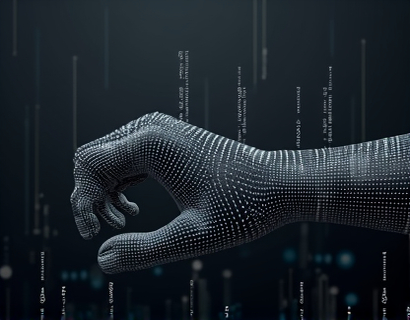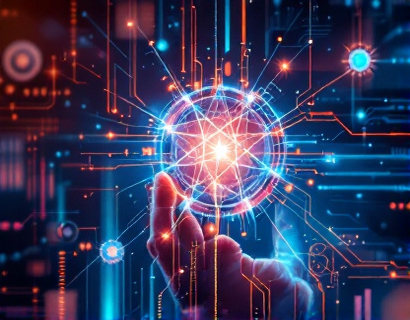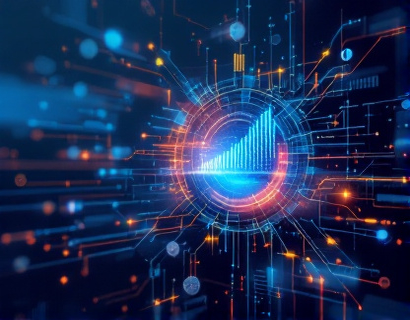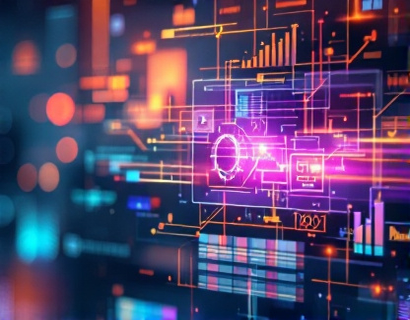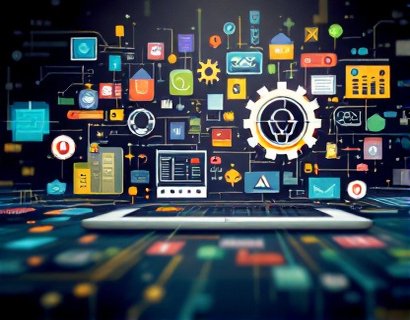Unlocking Enhanced Digital Transformation: The Synergy of Crypto and AI
The intersection of cryptocurrency and artificial intelligence represents a frontier of digital transformation, offering unprecedented opportunities for tech innovators and early adopters. This convergence is not merely a technological curiosity but a powerful force reshaping the landscape of online presence and digital interaction. By harnessing the decentralized, secure, and transparent nature of blockchain technology alongside the cognitive prowess of AI, we can unlock new dimensions of efficiency, security, and user experience. This article delves into the transformative potential of combining these two revolutionary technologies, exploring how they can elevate digital experiences and redefine what is possible in the realm of online applications and services.
The Foundations of Cryptocurrency and AI
To understand the synergy between cryptocurrency and AI, it's essential to first grasp the fundamentals of each. Cryptocurrency, exemplified by Bitcoin and Ethereum, is a digital or virtual currency that uses cryptography for security and operates on a decentralized network known as a blockchain. This decentralized nature ensures that no single entity has control, making transactions secure and transparent. On the other hand, artificial intelligence involves the simulation of human intelligence processes by machines, particularly computer systems. These processes include learning, reasoning, and self-correction, enabling AI to perform tasks that traditionally required human intervention.
The integration of AI with blockchain technology amplifies the capabilities of both. AI can process and analyze vast amounts of data from the blockchain, identifying patterns and insights that would be impossible for humans to discern manually. Conversely, the immutable and secure nature of blockchain provides a robust framework for AI systems to operate, ensuring data integrity and trust. This symbiotic relationship is the cornerstone of a new era in digital transformation, where the boundaries of what's possible are continually expanded.
Enhancing Security and Trust
One of the most significant benefits of combining cryptocurrency and AI is the enhancement of security and trust in digital transactions. AI algorithms can monitor blockchain networks in real-time, detecting and mitigating potential threats such as fraudulent activities or network anomalies. Machine learning models can be trained to recognize unusual patterns and behaviors, allowing for proactive measures to protect user data and assets. This level of security is crucial for building trust in decentralized systems, which are often perceived as vulnerable due to their open nature.
Moreover, smart contracts, self-executing contracts with the terms directly written into code, benefit immensely from AI integration. AI can ensure that the conditions of smart contracts are met accurately and efficiently, reducing the risk of errors or malicious manipulation. This not only streamlines processes but also ensures that all parties involved can have confidence in the outcomes, fostering a more trustworthy digital environment.
Optimizing User Experiences
The user experience is a critical factor in the adoption and success of any digital platform. By leveraging AI, platforms can offer personalized and intuitive interactions, tailoring content and services to individual user preferences and behaviors. For instance, AI-driven recommendation systems can analyze user data to suggest relevant applications, services, or content, enhancing engagement and satisfaction. This level of personalization is particularly powerful in decentralized ecosystems, where users have more control over their data and interactions.
Furthermore, AI can optimize the user interface and experience by dynamically adjusting elements based on real-time data. For example, AI can optimize loading times, adapt layouts for different devices, and even predict user actions to provide a seamless and efficient experience. In the context of blockchain-based applications, this means that users can interact with decentralized services without the friction typically associated with complex technical interfaces.
Efficient Data Management and Analytics
Data is the lifeblood of any modern digital platform, and the combination of cryptocurrency and AI offers unparalleled capabilities in data management and analytics. Blockchain's inherent transparency and immutability provide a reliable and secure repository for data, while AI can process and analyze this data at scale. This synergy enables real-time insights and predictive analytics, allowing businesses and developers to make informed decisions and drive innovation.
For instance, in decentralized finance (DeFi) applications, AI can analyze transaction patterns, market trends, and user behavior to optimize lending, borrowing, and trading processes. This not only improves efficiency but also enhances the overall user experience by providing more accurate and timely information. Additionally, AI can help in identifying new opportunities and risks, enabling more strategic and proactive approaches to digital transformation.
Decentralized Applications and AI Integration
Decentralized applications (dApps) are at the forefront of the crypto-AI convergence, offering new paradigms for software development and deployment. dApps leverage blockchain's decentralized nature to create applications that are resistant to censorship, tampering, and single points of failure. When AI is integrated into these dApps, the potential for innovation becomes even more profound.
For example, AI-powered dApps can automate complex tasks, such as content moderation, fraud detection, and personalized user experiences, all while maintaining the decentralized and transparent principles of blockchain. This integration not only enhances functionality but also ensures that the benefits of decentralization are fully realized. Users gain more control over their data and interactions, while developers can build more robust and scalable applications.
Challenges and Considerations
While the combination of cryptocurrency and AI offers immense potential, it is not without challenges. One of the primary concerns is the technical complexity involved in integrating these technologies. Developers need a deep understanding of both blockchain and AI to create effective and secure solutions. Additionally, the regulatory landscape for cryptocurrencies is still evolving, and the intersection with AI adds another layer of complexity. Ensuring compliance and navigating legal requirements is crucial for the successful deployment of these technologies.
Another consideration is the computational resources required for AI algorithms, particularly those involving machine learning and deep learning. Blockchain networks, especially those using proof-of-work consensus mechanisms, can be energy-intensive. Therefore, it's essential to explore more sustainable and efficient consensus mechanisms that can support the computational demands of AI without compromising environmental sustainability.
Future Prospects and Innovations
The future of crypto-AI integration holds exciting possibilities. As technology advances, we can expect more sophisticated AI models that can operate directly on blockchain networks, reducing the need for off-chain processing and enhancing scalability. The development of specialized blockchain platforms designed for AI applications will further facilitate this synergy, providing tailored solutions for various use cases.
Moreover, the rise of interoperability protocols will enable seamless interaction between different blockchain networks and AI systems, creating a more interconnected and efficient digital ecosystem. This will open up new avenues for collaboration and innovation, allowing developers to build more comprehensive and integrated solutions.
In the realm of decentralized identity management, AI can play a pivotal role in creating secure and user-friendly identity solutions. By leveraging AI for identity verification and management, users can have greater control over their personal data while ensuring compliance with regulatory standards. This not only enhances privacy but also simplifies the user experience in a decentralized world.
Conclusion
The convergence of cryptocurrency and AI represents a transformative force in the digital landscape, offering unparalleled opportunities for tech innovators and early adopters. By combining the security, transparency, and decentralization of blockchain with the cognitive power of AI, we can unlock new dimensions of digital transformation. This synergy not only enhances security and user experiences but also drives efficiency and innovation in data management and application development. As we continue to explore and harness this powerful combination, the future of online presence and digital interaction will be shaped by those who embrace and lead this revolution.










